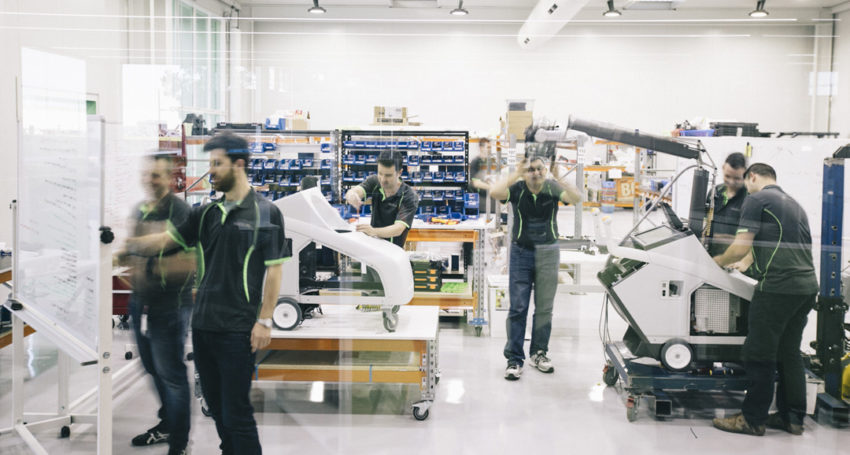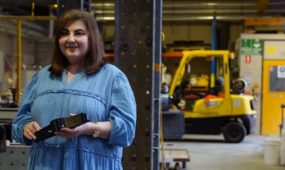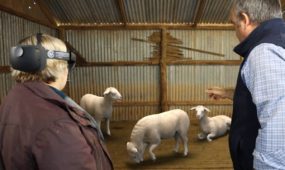Lightweight x-ray machine receives FDA approval
Technology
AN Australian made lightweight x-ray machine set to revolutionise mobile radiography has been given Food and Drug Administration (FDA) approval.

Sign up to receive notifications about new stories in this category.
Thank you for subscribing to story notifications.

Micro-X announced to the Australian Stock Exchange (ASX) today that the American FDA had determined the “substantial equivalence” of its DRX Revolution Nano meaning it can now market the product in the United States.
The 510 (k) approval is the first regulatory approval for a carbon nanotube powered x-ray product following a collaboration between the South Australian company and US-based Carestream Health, a global leader in medical film and digital imaging solutions.
To be sold in up to 130 countries, the DRX Revolution Nano uses carbon nanotube technology to dramatically reduce weight and increase portability. Carestream will showcase the units at a AHRA conference in Anaheim, California on July 9.

Micro-X established its headquarters at the Tonsley Innovation Hub in Adelaide, the capital of South Australia, in January 2016 in preparation for the production of its lightweight machines.
It has since manufactured a small number of pre-production carts, which have been through a detailed validation process.
Micro-X Managing Director Peter Rowland said the product would use Carestream’s DRX digital detector and the company’s global marketing and distribution reach.
“We are pleased and proud to have achieved this highly significant milestone in the Nano’s commercialisation program,” he said.
“Our focus now is on supporting Carestream’s upcoming trade trials and preparations for volume production at Tonsley with our supply chain partners.”
Rowland, pictured centre below, said the cart’s clever design allowed for simple and fast assembly in South Australia.

About half of Micro-X’s staff previously worked at General Motors’ Holden car assembly plant in Adelaide, allowing Rowland to use their production line expertise to streamline his own manufacturing process.
“So much of it is about the supply chain – we can build one of these things in four hours so we can be very flexible to respond to market demand but it comes down to how many parts are on our shelves so managing the supply chain is a big part of what we’re doing,” he said.
The machine’s sleek and compact design, coupled with the carbon nanotube technology and an advanced lithium iron phosphate battery helps it achieve a weight of about 93kg (205 pounds). Carestream’s previous model weighs in at 567kg (1300 pounds).
The lighter weight also means the machine does not need a motor to move around, making it easy to transport and position in cramped critical care areas.
Micro-X has capacity to build four machines a day on a single shift but its facility can be extended to meet demand.
The carbon nanotube technology that makes the lightweight machines possible was developed at the University of North Carolina at Chapel Hill and partially at Duke University in the United States. Micro-X has the sole rights to apply the technology in the field of mobile medical.
Micro-X has a contract with the Australian Department of Defence to develop and demonstrate the technology of an ultra-lightweight, digital mobile x-ray, which is optimised for use in military deployed medical facilities.

It also has a contract to develop a small, lightweight, Mobile Backscatter Imager (MBI) system for stand-off imaging of Improvised Explosive Devices.
Tonsley is on the site of a former Mitsubishi car manufacturing plant in Adelaide’s southern suburbs. It is Australia’s first innovation hub and brings together advanced manufacturing companies, University STEM programs, renewable energy leaders and hi-tech pacesetters in the one precinct.
Jump to next article



